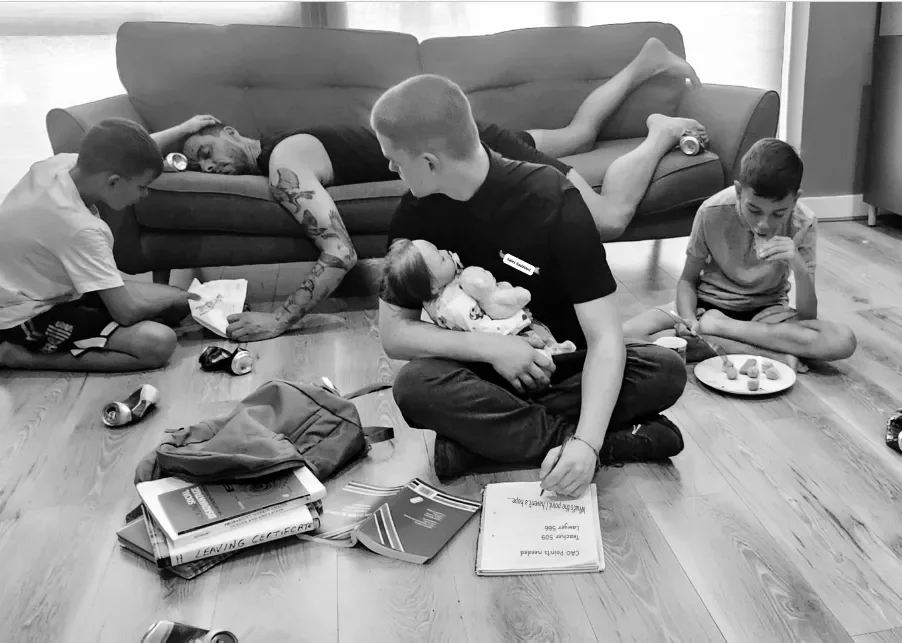

DCU researcher breaks ground with educational access research awarded two university prizes
Melissa Lynch’s personal journey, marked by overcoming extreme poverty and adversity to pursue her educational and career aspirations, fuels her dedication and passion towards her research into the barriers which keep people from backgrounds like her’s from pursuing third level education. She has now won two university wide internal competitions at DCU in what is just the second year of her PhD, in which she is taking an engaged, hands on approach to examining this complex issue.
With less than 10% of higher education students originating from disadvantaged backgrounds according to the Higher Education Authority, the necessity of expanding the conversation beyond economic circumstances is clear. Melissa’s firsthand experience informs her understanding of these challenges. These include a lack of support with schoolwork or applications, being the primary caregiver to younger siblings, or not knowing anyone who has gone to college or successful careers. “But it's not only about what's missing.” she says "It's also about not getting the help or support they need to join in, learn and do well in school.”
In the initial phase of field research, Melissa engaged directly with students, revealing moving insights. The findings already highlight critical issues such as guidance, social capital deficits, and pervasive feelings of inadequacy among students, underscoring the complexity of barriers faced by individuals in these positions. In addition to a lack of guidance and meaningful connections in education or professional fields weighing heavily on their minds, their concerns included potential ridicule from their families "my family would slag me" and feelings of inadequacy, expressed as not being "smart enough."

Her PhD project will be titled 'NOBODY REALLY KNOWS! Exploring the Impact of Social and Cultural Capital on Low Socioeconomic Status (LSES) Students' Progression from DEIS Post-primary Schools to Further and Higher Education in Ireland,' explores this nuanced area in the wider context of social and cultural capital. Social capital refers to the resources and support networks available through relationships and connections, while cultural capital encompasses the shared knowledge, skills, and experiences that impacts the educational journeys of these students.
Central to Melissa's approach is the prioritisation of perspectives often overlooked in academic discourse: the voices of students, families, communities, and educational professionals working within DEIS post-primary schools. By amplifying these voices, Melissa aims to uncover the nuanced impacts of social and cultural factors on the academic journey of LSES students.
Melissa’s own background and unique understanding played a crucial role in uncovering these voices: her own experience of entering education without social and cultural capital means she was aware and able to foster an environment where participants felt comfortable with her and to share their honest experiences. Lynch stresses that having had similar experiences, she was able to relate, understand and be non-judegmental. Melissa's dedication to prioritising the voices of the students led her to spend additional time visiting each school, engaging with students class by class and reaching out to parents individually when conventional methods of gathering participants and consent proved inadequate.
Much of the recognition Melissa's research has garnered thus far has been for its visual impact. Over the last year she won the inaugural DCU Research on Walls Competition, where she encapsulated her research into a compelling visual image (attached), sparking widespread interest in her study. Subsequently, Melissa clinched the DCU Tell it Straight Competition in the Video Category. The video received overwhelming praise for effectively communicating the importance of her research to a non-specialist audience, evoking emotions and prompting reflection.
Reflecting on her choice to present her research through video, Melissa emphasises the power of storytelling in bridging understanding gaps. By grounding her narrative in personal experiences and evocative imagery, she aimed to connect viewers from diverse backgrounds to the realities of life for many students in these circumstances. In a world where qualitative research in education often struggles to capture attention, Melissa's innovative approach not only sheds light on the hidden obstacles faced by the students but also challenges us all to see beyond statistics and truly understand the human impact of educational inequality.
By revisiting her childhood area, Melissa tapped into a range of emotions, including pride, sadness, and reflection reaffirming the purpose and impact of her research. She believes that her research serves a purpose and will provide support to individuals seeking to change their narratives, emphasising the importance of encouragement and support.
Overall, Melissa's research aims to shed light on the complexities of educational progression for LSES students, with the ultimate goal of advocating for equal opportunities and dismantling barriers to further and higher education. Her research demonstrates her commitment to advocating for equal opportunities in education, a key part of her role as a board member of Youth Advocate Programmes Ireland (YAP). Melissa currently lectures at the DCU Institute of Education alongside her PhD studies.
